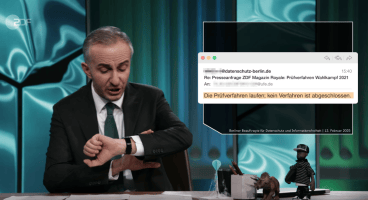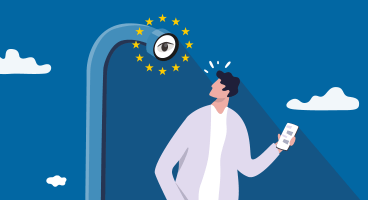Today, noyb filed a series of complaints against several German political parties. The parties had used microtargeting on Facebook during the 2021 federal election to identify potential voters and target them with personalized election promises. However, political opinions are particularly protected under the GDPR, which makes the parties' practices unlawful and a threat to democracy and to the privacy of voters.

- Complaint against the CDU
- Complaint against the AFD
- Complaint against the SPD
- Complaint against Bündnis 90/Die Grünen
- Complaint against DIE LINKE
- Complaint against the Ecological Democratic Party
- Autotranslated Complaint (EN)
All parties in the German Bundestag use microtargeting. Research by ZDF Magazin Royale had revealed that all parties represented in the Bundestag used political microtargeting on Facebook to target ads to a select group of people. Information about how the parties "target" their voters is kept secret by Facebook. In April 2021, the German late night show ZDF Magazin Royale asked their audience to install a browser extension to log microtargeting data. After a call for donation of this data, noyb was able to analyze this data and identify specific violations of the GDPR.
Sensitive data for microtargeting. noyb's data analysis revealed that Facebook users were targeted with political advertising most recently during the German federal election. This is not unlawful per se. However, the users were selected because Facebook had evaluated their political views in the background. Political opinions are specifically protected under Article 9 GDPR, therefore both the parties and the social network violated the GDPR. The complaints were brought against various parties or sub-organizations, as they are responsible for the advertisements.
"Any data on a person's political views is protected particularly strictly by the GDPR. Such data is not only extremely sensitive, but also allows large-scale manipulation of voters, as Cambridge Analytica has shown." - Felix Mikolasch, privacy lawyer at noyb
Microtargeting as a danger to democracy. One of the greatest dangers of political microtargeting is that a voters political opinion can be influenced and altered. Political parties can make countless promises to a specific groups of voters and can hide their personalized stance from the general public. This can lead to very different expectations in voters, which politics can never live up to. The result is a polarized society, and individual parties can create advantages for themselves in the election campaign by making contradictory promises.



